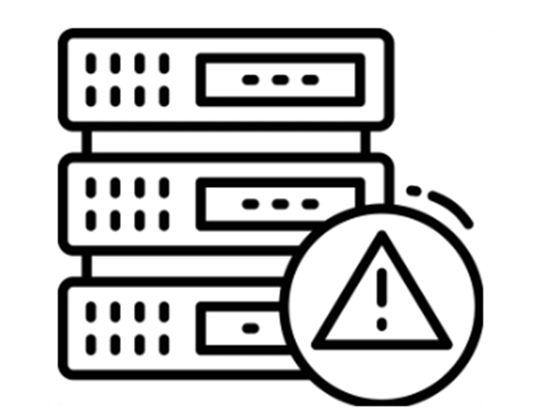Pros and Cons of Shared Web Hosting for Small Businesses

A website serves as the foundation for digital marketing, e-commerce, customer engagement, and brand awareness. It acts as a virtual storefront, allowing businesses to showcase their products or services, connect with potential customers, and establish credibility in the market. With the increasing reliance on the internet for information and shopping, a well-designed and efficiently hosted website can drive sales, generate leads, and provide customer support 24/7.
However, hosting a website requires selecting the right web hosting service, which can significantly impact performance, security, and overall success. Choosing the wrong hosting plan can lead to slow website loading times, frequent downtime, and security vulnerabilities, all of which can negatively affect a business’s reputation and revenue. Entrepreneurs need to carefully evaluate their hosting options to ensure they select a plan that aligns with their business goals and technical requirements.
One of the most common choices for small businesses is shared web hosting. Shared hosting allows multiple websites to reside on a single server, sharing resources like bandwidth, CPU, and storage space. This makes it an attractive option for startups and small businesses due to its affordability and ease of use. Most cheap shared hosting plans come with pre-installed tools, intuitive control panels, and customer support, making website management accessible even for those with minimal technical knowledge.
While shared hosting offers many benefits, it also comes with potential drawbacks, such as limited resources, security risks, and performance constraints. As a business grows, its website’s needs may surpass the capabilities of shared hosting, necessitating an upgrade to a more robust hosting solution.
This article explores the pros and cons of cheap shared web hosting for small businesses, helping entrepreneurs weigh their options and make an informed decision based on their specific needs and long-term objectives.
Pros of Shared Web Hosting-
1. Cost-Effectiveness
One of the primary advantages of shared web hosting is its affordability. Because multiple users share the same server resources, web hosting providers can distribute costs, making shared hosting plans significantly cheaper than VPS or dedicated hosting. For small businesses with limited budgets, this cost-effective option allows them to establish an online presence without a significant financial investment.
2. Easy Setup and Management
Cheap shared web hosting plans often come with user-friendly interfaces, such as cPanel or Plesk, which simplify website management. Even individuals with limited technical knowledge can easily install WordPress, create email accounts, manage domains, and configure settings with just a few clicks.
3. Maintenance and Security Provided by the Host
Most shared hosting providers handle essential server maintenance, security updates, and technical support. This alleviates the burden of maintaining server software, performing security patches, and ensuring smooth operation, allowing small business owners to focus on their core activities rather than IT management.
4. Scalability for Beginners
Many small businesses start with minimal website traffic, making shared hosting a suitable choice. Web hosting providers often offer the ability to upgrade plans as the business grows, allowing seamless transitions to VPS or dedicated hosting when necessary.
5. Customer Support
Shared hosting providers usually offer 24/7 customer support via live chat, phone, or email. This is beneficial for small businesses that may not have dedicated IT personnel to troubleshoot technical issues.
6. Bundled Features and Tools
Many shared hosting plans include additional features, such as free SSL certificates, website builders, automated backups, and one-click installations for popular content management systems (CMS) like WordPress, Joomla, and Drupal. These add-ons enhance the overall value of shared hosting.
Cons of Shared Web Hosting-
1. Limited Performance and Speed
Since multiple websites share the same server resources, high traffic on one website can impact the performance of others. Slow website loading times can lead to poor user experience, affecting search engine rankings and conversion rates. Businesses with growing traffic may outgrow shared hosting and require an upgrade.
2. Security Risks
Although web hosting providers implement security measures, shared hosting environments pose a higher security risk. If one website on the server is compromised due to malware or hacking, others on the same server may also be affected. Cross-site contamination is a significant concern, particularly for businesses handling sensitive customer data.
3. Resource Limitations
Cheap shared hosting plans come with resource caps on CPU usage, RAM, storage, and bandwidth. If a business website experiences a sudden spike in traffic, it may exceed allocated resources, leading to temporary downtime or reduced performance. Web hosting providers often impose restrictions to prevent excessive resource consumption by a single user.
4. Limited Customization and Control
Shared hosting users have restricted access to server configurations and advanced settings. Unlike VPS or dedicated hosting, where businesses have root access and complete control over software installations, shared hosting limits customization options. This can be a disadvantage for businesses requiring specialized applications or configurations.
5. Risk of Server Overload
If multiple high-traffic websites exist on the same server, it can lead to server overload, resulting in performance degradation. While best and cheap web hosting providers implement resource allocation strategies, the risk of server crashes or slow response times remains.
6. Shared IP Address Concerns
In a shared hosting environment, multiple websites use the same IP address. If one of the websites engages in malicious activities, spam, or black-hat SEO tactics, the shared IP may be flagged or blacklisted. This could negatively impact email deliverability and SEO rankings for all websites on that server.
When Should Small Businesses Consider Shared Hosting?
Shared hosting is an excellent option for many small businesses, particularly those that are just beginning their online journey. Startups and new businesses with minimal web traffic can benefit from the affordability and simplicity of shared hosting, allowing them to focus on building their brand without investing heavily in infrastructure. As the business grows and demands increase, they can transition to more advanced web hosting solutions.
For businesses operating on a tight budget, cheap shared hosting offers a cost-effective way to establish an online presence. Unlike VPS or dedicated hosting, which can be significantly more expensive, shared hosting allows small enterprises to allocate resources wisely while still maintaining a professional website. This makes it an ideal option for entrepreneurs who want to test the waters before committing to higher-tier hosting plans.
Basic websites that don’t require substantial resources—such as blogs, small e-commerce stores, portfolio sites, and informational business pages—can function well on shared hosting. If a website does not have high volumes of traffic or complex functionality, cheap shared hosting provides a reliable and economical solution to keep the site running smoothly.
Additionally, non-technical users who lack experience with server management will appreciate the simplicity of shared hosting service. Many best web hosting providers include user-friendly control panels, automated updates, and customer support, making it easy for business owners to manage their website without extensive technical knowledge. This is especially beneficial for small business owners who prefer to focus on their core operations rather than worrying about backend website maintenance.
When to Upgrade from Shared Hosting?
As businesses grow, their web hosting needs evolve. Shared hosting may no longer be sufficient when a website experience increased traffic, security concerns, or demands greater customization. One of the first signs that an upgrade is necessary is significant website traffic growth, which can slow down loading speeds and impact user experience. Slow websites can drive visitors away and hurt conversion rates, making it essential to switch to a web hosting solution that offers better performance and scalability.
Another crucial factor is security risks, especially for businesses handling sensitive customer data or online transactions. E-commerce websites that process payments require robust security measures, including dedicated SSL certificates and advanced firewall protections, which cheap shared hosting may not adequately provide. Upgrading to VPS or dedicated hosting offers enhanced security protocols and isolation from other users on the server, reducing vulnerabilities.
For businesses that require greater control and customization, shared hosting’s limited server access can be a significant drawback. If a business needs to install specialized software, configure advanced settings, or optimize server resources for unique applications, a VPS or dedicated server provides the flexibility needed to implement these changes effectively.
Frequent downtime or performance issues are also clear indicators that a business has outgrown shared hosting. Unreliable website performance can damage a company’s reputation and result in lost revenue. Businesses that experience regular site crashes, slow load times, or bandwidth limitations should consider moving to a more robust web hosting solution to ensure consistent uptime and smooth operations.
Ultimately, transitioning from shared hosting to a VPS or dedicated server depends on a business’s growth trajectory and website demands. Monitoring performance metrics, assessing security needs, and evaluating customization requirements will help determine the right time to upgrade and maintain a seamless online presence.
Conclusion-
Cheap shared web hosting remains a popular choice for small businesses due to its affordability, ease of use, and included maintenance. However, it also comes with limitations in performance, security, and resource allocation. Understanding the pros and cons of cheap shared hosting allows business owners to make informed decisions based on their needs and growth trajectory. As a business expands, monitoring website performance and upgrading to a more robust hosting solution will ensure long-term success in the digital landscape.
Note: IndiBlogHub features both user-submitted and editorial content. We do not verify third-party contributions. Read our Disclaimer and Privacy Policyfor details.







